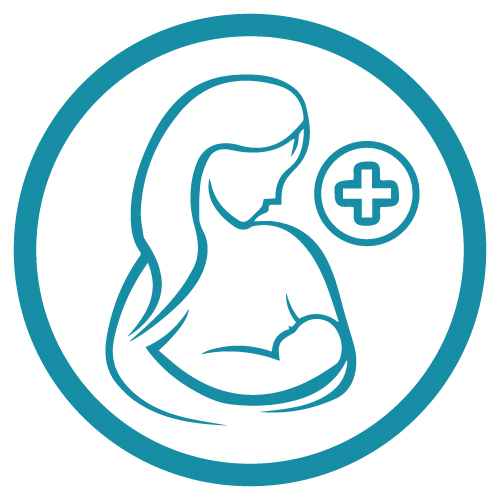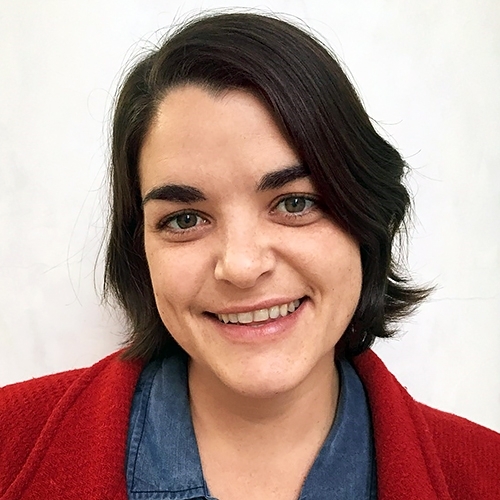 IBCLC Detailed Content Outline: Development and Nutrition Focused CERPs - Section I
IBCLC Detailed Content Outline: Development and Nutrition Focused CERPs - Section I
Access CERPs on Development and Nutrition for the IBCLC Detailed Content Outline recertification requirements. Enjoy convenient on-demand viewing of the latest Development and Nutrition focused IBCLC CERPs at your own pace.


Dr. Joana Torres received her medical degree from the University of Coimbra, Portugal, and completed her fellowship in Gastroenterology at the Hospital Center of Coimbra, Portugal. She spent 3 years at Icahn School of Medicine at Mount Sinai, NY, USA working on research projects in the field of IBD. She is currently working in Hospital Beatriz Ângelo, Loures, Portugal as a Gastroenterology Assistant and she is Adjunct Assistant Professor at Mount Sinai, NY. She is the President of the Scientific Committee of the Portuguese IBD Group and an active member of the European Crohn and Colitis Guideline committee (GuiCom). Her research focuses on populations at risk for developing inflammatory bowel disease with the goal of better understanding events taking place before the disease is diagnosed.
Inflammatory Bowel Disease is a chronic immune-mediated disease with increasing epidemiology. IBD results from a complex relationship between genetic susceptibility, environmental factors and intestinal microbiota, resulting in a self-perpetuating abnormal mucosal immune response. Increasing epidemiological evidence suggests that early life events and childhood exposures may be important for determining the risk of IBD. One of the most important early life exposures is diet: breastfeeding (BF) or formula feeding may impact microbiome development, which in turn may modulate immune system maturation. In this presentation I will review the benefits of BF, the evidence suggesting the role of BF in IBD, the impact of BF on the developing microbiome, and debate the issues of breastfeeding in patients with IBD.

View Details / Enroll
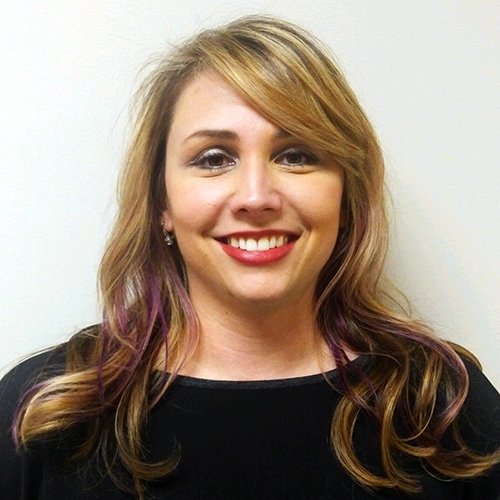
Breastfeeding and Neonatal Abstinence Syndrome

Amber Valentine is a Speech-Language Pathologist who graduated from the University of Kentucky with her MS in Communication Disorders. She is a Board Certified Specialist in Swallowing and Swallowing Disorders and an International Board Certified Lactation Consultant, as well as a Certified Neonatal Therapist (CNT). She worked for Baptist Health Systems, Inc for 8 years before moving to Florida where she worked for Wolfsons Children’s Hospital and Mayo Florida. She is now back in Kentucky working for Baptist Health Lexington. She has experience in adults and pediatrics with feeding and swallowing difficulties including: bedside swallow evaluations, Modified Barium Swallow studies, FEES, and pediatric feeding evaluations including NICU. She has experience with head and neck cancer patient including evaluation and treatment of swallowing difficulties, PMV use, and voice after total laryngectomy including TEP. She has provided guest lectures for the University of Kentucky, Eastern Kentucky University, and the University of Louisville on feeding and swallowing topics. She has presented at the hospital, local, state, national, and international levels on pediatric feeding/swallowing and breastfeeding.
Topic: Breastfeeding Medically Complex Infants in the Neonatal ICU - [View Abstract]
Topic: Building a Successful Breastfeeding Program in the NICU: Challenges and Practical Solutions - [View Abstract]
This presentation is designed to discuss the role of feeding therapy, breastfeeding, and family dynamics with infants with neonatal abstinence syndrome. These baby/family dynamics can be complex situations and feeding difficulties are extremely common. Breastfeeding education/information can be implemented prior to birth along with other education for families to promote more infant/family bonding and reduce stress of being born in substance exposure. Breastfeeding dramatically reduces stress signs in infants exposed to substances neonatally. Working together as an interdisciplinary team, we can set these families up for more successful feeding opportunities and decreased stress in developmental care.

View Details / Enroll

Breastfeeding as a Prevention Strategy for Speech Language Disorders

Lina Mazzoni is a Lactation Consultant, IBCLC with a Bachelors Degree in Speech and Language Therapy. Since 2013 she has been working primarily with children and specialized in the treatment of sucking, swallowing and feeding disorders. In 2019 she became a Lactation Consultant to be able to work equivalent with the children and the mother. As a working mom she worked part time as a Lactation Consultant in a hospital in Hamburg, started her own privat practice in 2019 and since october 2021 she works exclusively in her private practice as a lactation consultant and SLT. She also works as an Instructor in lactation education and further education regarding feeding developement and disorders . Lina has two children and lives with them and her husband in Hamburg, Germany.
Topic: Sucking Disorders in Children with Neurological, Muscular, Genetic or Anatomical Diseases - [View Abstract]
The prevention and early treatment of diseases is part of a Speech and Language Therapist's working field.
The question is, at what point can SL Therapy have a preventative influence, what are the advantages of early consultations and treatments and what significance does a nursing and lactation consultation have in this context. Asha and Fletcher (2005, S.1) called a SL Therapist and a Lactation Consultant a "Baby's feeding dream team", so the combination of these two professions might be a good way to facilitate difficult breastfeeding relationships and reduce SL disorders over the years.
Breastfeeding is the physiological way to feed a baby. It supports the Mother-Child-Bond and sets the foundation for the undisturbed organic, sensorial, motoric, cognitive, oral and social development. If there is a problem with the ingestion of food (oromotor dysfunction or dysphagia), the topic of breastfeeding tends to move to the background. But what if breastfeeding can be used as part of the therapy? Promoting early SLT and by supporting the breastfeeding and preventing the use of artificial teats, which can have a negative influence especially on the oromotor and muscle development, the outcome might improve.

View Details / Enroll

View Details / Enroll

Breastfeeding Medically Complex Infants in the Neonatal ICU

Amber Valentine is a Speech-Language Pathologist who graduated from the University of Kentucky with her MS in Communication Disorders. She is a Board Certified Specialist in Swallowing and Swallowing Disorders and an International Board Certified Lactation Consultant, as well as a Certified Neonatal Therapist (CNT). She worked for Baptist Health Systems, Inc for 8 years before moving to Florida where she worked for Wolfsons Children’s Hospital and Mayo Florida. She is now back in Kentucky working for Baptist Health Lexington. She has experience in adults and pediatrics with feeding and swallowing difficulties including: bedside swallow evaluations, Modified Barium Swallow studies, FEES, and pediatric feeding evaluations including NICU. She has experience with head and neck cancer patient including evaluation and treatment of swallowing difficulties, PMV use, and voice after total laryngectomy including TEP. She has provided guest lectures for the University of Kentucky, Eastern Kentucky University, and the University of Louisville on feeding and swallowing topics. She has presented at the hospital, local, state, national, and international levels on pediatric feeding/swallowing and breastfeeding.
Topic: Breastfeeding Medically Complex Infants in the Neonatal ICU - [View Abstract]
Topic: Building a Successful Breastfeeding Program in the NICU: Challenges and Practical Solutions - [View Abstract]
Feeding is the most complex task of infancy, even in term babies with no complications. There are many diagnoses, conditions, syndromes, and co-morbidities that can impact feeding in neonates and infants. This talk will briefly highlight many of those, but we will focus on three specific populations of interest –Cleft lip and palate, Infants of Diabetic Mothers, and Down Syndrome. We will discuss the specific implications these conditions can have on feeding, why these infants may have difficulty, and the classic symptoms one could expect to see. The differences between delayed and disordered feeding will also be addressed. Strategies and adaptions for both breast and bottle feeding will be discussed. Positioning, nipple flow rate, and external strategies will be explained. Case studies will be shared at the end of the presentation.

View Details / Enroll

View Details / Enroll


Dr. Yvonne LeFort has been a family physician for over 25 years and is based in Auckland New Zealand. She is a graduate of Dalhousie Medical School and University of Calgary Family Medicine in Canada. She is a Fellow of the Academy of Breastfeeding Medicine since 2013.
She has been involved in helping breastfeeding mothers and babies for 18 years. Her specific interest in tongue tie and its management was nurtured through her association with Dr. Evelyn Jain who was a true pioneer in the recognition of the importance of breastfeeding and the impact that untreated ankyloglossia can cause on the breastfeeding experience.
Dr. LeFort has established a private Breastfeeding Clinic in Auckland New Zealand providing comprehensive lactation care for mothers and their infants. Her service includes the management of tongue tie and involves a lactation consultant for parallel breastfeeding support.
Promoting and protecting breastfeeding is crucial in medical practice. Learn more about general principles when approaching clinical scenarios involving breastfeeding dyads and common diagnoses and management strategies. Learn how to assess the normal breastfeeding parameters throughout infancy and the “first do no harm” approach to breastfeeding patients’ concerns. I will review some special circumstances and how to advise your breastfeeding patient in such circumstances.
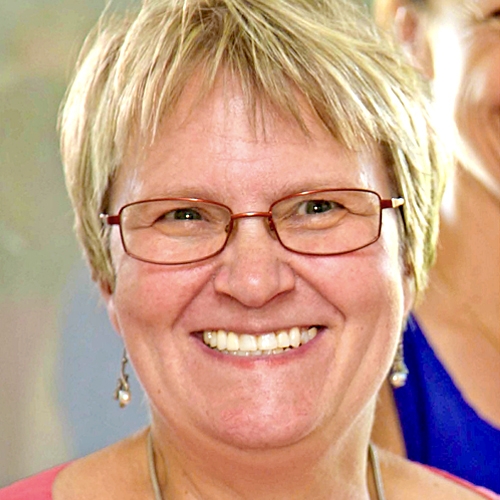
Breastfeeding of Preterm Infants – Associated Factors in Infants, Mothers, and Clinical Practice

Clinical nurse researcher in the area of breastfeeding preterm infants and skin-to-skin contact at dept. of Neonatology, Copenhagen University Hospital Rigshospitalet and leader of Knowledge Centre for Breastfeeding Infants with special needs. Member of the Nordic and Quebec Working Group expanding the BFHI for neonatal wards (Neo-BFHI).
Breastfeeding of preterm infants is associated with factors in infants, mothers and clinical practice.
Extremely preterm infants establish exclusive breastfeeding at a higher PMA and have twice the risk of not being exclusively breastfed at discharge. Low education, less breastfeeding experience, and smoking are maternal factors negatively associated with exclusive breastfeeding.
Admitting mothers to the NICU together with the infant immediately after delivery is associated with earlier establishment of exclusive breastfeeding. The later the initiation of breast milk expression, the later the establishment of exclusive breastfeeding, and the higher risk for failure of exclusive breastfeeding at discharge and inadequate breastfeeding duration. The use of a nipple shield is associated with failure of exclusive breastfeeding at discharge and inadequate duration of exclusive breastfeeding. Minimizing the use of a pacifier during breastfeeding establishment and test weighing the infant are positively associated with exclusive breastfeeding at discharge.

View Details / Enroll
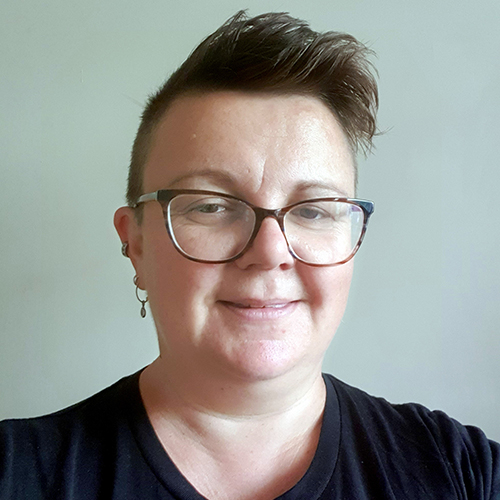
Breastfeeding Twins and Triplets: Supporting Families During Their Breastfeeding Journey

Kathryn Stagg is mum to 4 boys, twins and 2 subsequent singletons. She trained as a breastfeeding peer supporter and volunteered in the groups for years in and around Harrow, NW London, UK.
Kathryn caught the breastfeeding support bug and decided to further her knowledge training as a Breastfeeding Counsellor with the Association of Breastfeeding Mothers and then qualifying as an IBCLC 5 years ago.
Kathryn started Breastfeeding Twins and Triplets Facebook group almost 8 years ago and it now has over 9000 members. It has recently been made into a UK charity. Kathryn is passionate about delivering high quality breastfeeding support to as many twin and triplet families as possible, creating resources and educating health care professionals and breastfeeding supporters. She runs a small private practice and continues to teach music part time, her original career path. Kathryn is the author of Breastfeeding Twins and Triplets; a guide for professionals and parents.
/p>
Topic: Don't Let Us Fool You: Breastfeeding in Late Preterm and Early Term Babies - [View Abstract]
This session will help you understand the challenges of a multiple pregnancy and birth. Discover preparations that can help ease stress and increase success in lactation. Learn how to support families experiencing premature birth. You will understand the best way to help parents establish breastfeeding their multiples, even with late preterm/early term birth. This session will help attendees gain and understanding of how to navigate the challenges of breastfeeding multiples and how to support families effectively during the different stages of their breastfeeding journeys.

View Details / Enroll
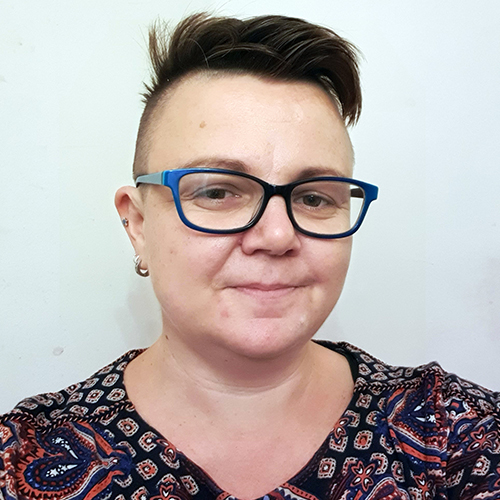
View Details / Enroll

Breastfeeding With Ease: The Impact of Infant Reflex Emergence and Integration

Bryna is a lactation consultant, mentor, educator, and birth doula in the Pacific Northwestern United States. They are active in their community as an advocate for mutual aid, reproductive justice, and reduction in barriers to care. They also own and manage an inclusive private practice. As a member of both Queer and Neurodivergent communities, offering inclusive care on every level is very important to Bryna. Their vision is to offer information and tools to providers to build a community of comprehensive, concordant, and individualized care for all families in the perinatal period.
Topic: Breastfeeding With Ease: The Impact of Infant Reflex Emergence and Integration - [View Abstract]
Topic: Rhythmic Movement for Breastfeeding Function - [View Abstract]
Reflexes play an important role in role in an infant’s ability to feed effectively. This foundational presentation discusses the process of reflex emergence and integration, the importance of reflexes in breastfeeding/chestfeeding and the impact of disorganized or absent reflexes. Also covered will be the impacts of trauma on infant reflex integration and the role of the lactation consultant in assessment and referral.

View Details / Enroll

View Details / Enroll


Mariana Colmenares Castano was born in Mexico City, and from an early age she was fascinated by animals and nature.She studied medicine at the National University of Mexico (UNAM), and foundher passion as a pediatrician doing her residency at the National Pediatric Institute. When her first child was born she witnessed the lack of knowledge and commitment to breastfeeding within the medical profession, and so she decided to specialize in breastfeeding medicine. She certified as a Lactation Consultant (IBCLC) in 2011.Mariana is a member of the International Lactation Consultant Association, the Academy of Breastfeeding Medicine, and a proud founding member of the National Lactation Consultant Association of Mexico (ACCLAM), where she served on the Board of Directors as Education Coordinator (2014-2019). She is part of board director for the Academy of Breastfeeding Medicine for a 3 year period (2019-2022) and recently named as secretary for the Academy of Breastfeeding Medicine. Mariana is a member of the team for Breastfeeding Country Index BFCI, a project from Yale University and Universidad Iberoamericana. She is consultant for the National Health Institute in Mexico and has collaborated with UNICEF in breastfeeding projects and part of the steering committee for the WHO. She has spoken at national and international conferences, co-published numerous articles and co-authored a chapter for the National Academy of Medicine. At the moment she is a Clinical Fellow in Community Paediatrics in London.
Topic: Breastfeeding The Baby With Congenital Heart Disease - [View Abstract]
Topic: Breastfeeding with Insufficient Glandular Tissue - [View Abstract]
Topic: Clinical Assessment and Management of Jaundice in the Newborn - [View Abstract]
Topic: Oral Colostrum Care as an Immunological Intervention in the NICU - [View Abstract]
Breastfeeding is the normative way to feed babies all over the world. We have access to a large amount of scientific evidence that supports it. Advocates of breastfeeding such as health care professionals that protect, promote and support the breast/chest feeding dyad can struggle sometimes with women or babies who cannot breastfeed as the World Health Organization suggests. Mothers with low milk supply are often supported by family, friends and health care with well meaning advice and remedies to help them do their best. Women who have insufficient glandular tissue (IGT) struggle with their milk supply, despite good breastfeeding management. It is common to see families with this issue during their second or third lactation failure without really understanding what might be going wrong. These babies can have dehydration in the neonatal period, hypernatremia or even death without anybody that could help with a correct diagnosis or help with achievable goals that can benefit both mother and baby. It is of great importance to help with accurate diagnosis that can also benefit psychologically and can help parents choose to continue breastfeeding with breast/ chest supplementation.

View Details / Enroll


Barbara D. Robertson, IBCLC, has been involved in education for over 34 years. She received a Bachelor’s degree in Elementary Education in 1988 and her Master’s in Education in 1995. Barbara left teaching elementary students in 1995 to raise her two children. Barbara is now the Director of The Breastfeeding Center of Ann Arbor and of the brand new business LactaLearning.
The Breastfeeding Center of Ann Arbor will still continue to serve breast/chestfeeding families and now LactaLearning will be dedicated to all of Barbara’s professional lactation trainings. Barbara has developed two 95 hour professional lactation training, a group training and a completely self study training with Nancy Mohrbacher. Barbara’s idea of creating professional book groups has exploded with her hosting Making More Milk with Lisa Marasco, Supporting Sucking Skills with Cathy Watson Genna, Breastfeeding Answers, 2nd Edition with Nancy Mohrbacher, and new for the fall, Safe Infant Sleep with Dr. James McKenna. Barbara will be hosting a one day online conference in the fall with Lisa Marasco and Cathy Watson Genna using all of her tech savvy skills to make this a one of a kind experience. Barbara is also a speaker for hire on a wide variety of topics including Motivational Interviewing. Barbara volunteered for the United States Lactation Consultation Association as the Director of Professional Development for 4.5 years.
She just retired as Associate Editor for Clinical Lactation, a journal she helped create for USLCA. Barbara has free podcasts, a blog, and Youtube videos which can all be found on her websites lactalearning.com and bfcaa.com. She has written many articles as well. She loves working with parents and babies, helping them with breast/chestfeeding problems in whatever way she can.
Topic: Breastfeeding: Baby’s First Milestone - [View Abstract]
Topic: Clinical Assessment and Management of Low Milk Production - [View Abstract]
Topic: Deconstructing Online Messaging: Ethical Considerations - [View Abstract]
Topic: Milk Sharing and Milk Banking: Building Knowledge for Better Outcomes - [View Abstract]
Topic: The Baby's Not Gaining Weight! Now What? - [View Abstract]
Topic: The Great Nipple Shield Debate - [View Abstract]
Breastfeeding is widely acknowledged as being the healthiest way to feed an infant for at least two years. In the United States of America, the CDC 2014 Breastfeeding Report Card states that 79.2% of mothers start out breastfeeding. However, as the babies get older, these numbers plummet. Only 49.4% of these babies are receiving any breastmilk by 6 months of age. We know from the literature that the primary reasons mothers stop breastfeeding in these early months are pain and worrying about their breastmilk supply. These are problems with solutions if the proper support is in place. Why is this support lacking? Is it because for all of the talk, “breast is best”, the importance of breastfeeding is not really valued? What if successful breastfeeding was reframed into a milestone? Baby’s first milestone? This presentation will explore other milestones, walking, talking, and learning to read, and what happens if babies and young children are not reaching these markers in a reasonable time frame. What support systems are in place to help these milestones be achieved if babies are faltering? The possible reasons for a baby not being able to breastfeeding and possible solutions will then be examined from the lens of having proper support systems in place.

View Details / Enroll







